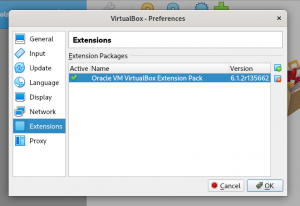
Unless you've already installed Virtual Box from the download website, I personally prefer to use Chocolatey because its faster by typing choco install virtualbox followed by installing the ( ).Please consider seeding others once you are done with your download.

This normally should start your qBittorrent.
Head over to the Arch Linux download section and click the torrent link for the latest version (I'm not pasting the link here, because arch evolves so fast that next time anyone reads this gist it is very likely that it will already be old). Install qBittorrent (which will be used to download an iso copy of arch) by running the following command from the command line choco install qbittorrent (recommended to run the command line as an administrator). Install the windows package manager chocolatey. There isn't much of preparation required, given that I started from scratch, but I did have to setup my windows environment a little bit. But along the way, I also noted a few other steps steps I took to make this system very comfortable, which you'll have to figure out for yourself if you like them or not! Setting up Windows 10 to be ready Below I note down the steps I took, which closely follow the excellent wiki pages of archlinux. I recently upgraded to a new system, and instead of running Arch Linux natively I've decided to run it inside VirtualBox on Windows 10. This binary, built with the Red Hat Go compiler, bypasses the standard library cryptographic routines and instead calls into a FIPS 140-2 validated cryptographic library.Installing Arch Linux on VirtualBox in Windows 10 FIPS compliant GitLab RunnerĪs of GitLab Runner 14.7, we provide a FIPS 140-12 compliant GitLab Runner binary. GitLab Runner runs the CI/CD jobs that are defined in GitLab. This instance can be self-managed, or you can use. Settings > CI / CD, expanding the Runners section, and clickingĪfter you install GitLab Runner, you must register individual runners with your GitLab instance. You can also view installation instructions in GitLab by going to your project’s 
You can find information on the different installation methods below. GitLab Runner officially supports the following operating systems:
CentOS, Debian, Ubuntu, RHEL, Fedora, Mint. 
Official packages are available for the following Linux distributions: GitLab Runner officially supported binaries are available for the following architectures: By using a repository for rpm/deb packages.GitLab Runner can be installed and used on GNU/Linux, macOS, FreeBSD, and Windows.

FIPS compliant GitLab Runner in other systems and architectures.








 0 kommentar(er)
0 kommentar(er)
